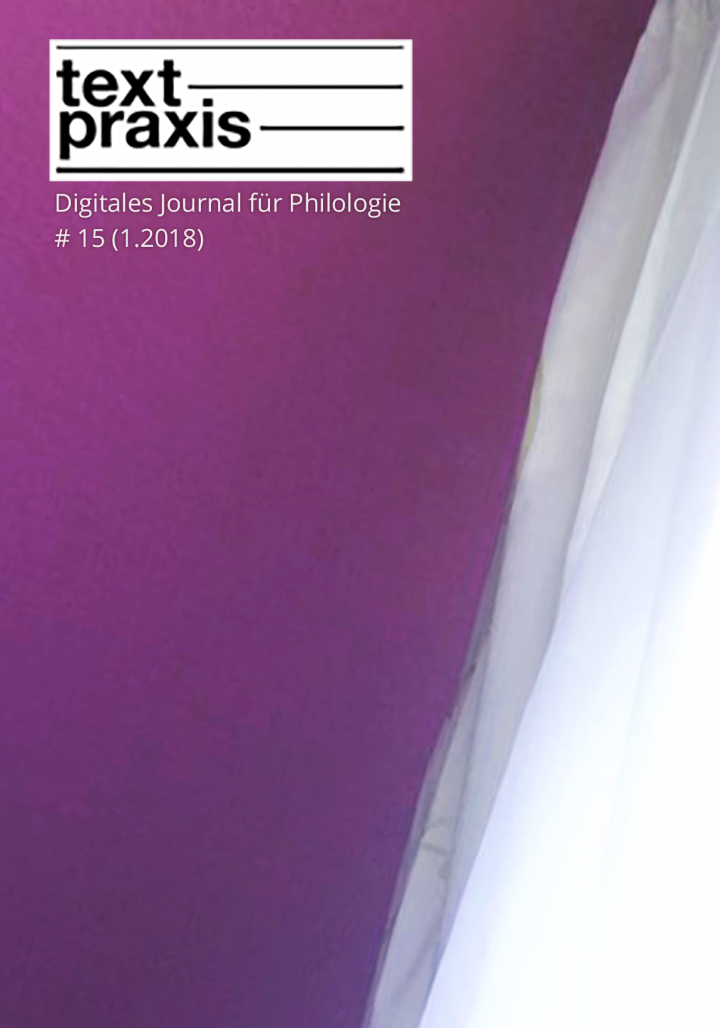Digital Journal for Philology

Textpraxis # 15 (1.2018)
In this issue, Jana Wittenzellner presents different conceptions of authorship with regards to the writings of Hildegart Rodriguez. Julian Ingelmann poses the question why the genre short stories dominates German writing forums, while Verena Meis examines parasitic tendencies in Kathrin Rögglas' works.
Depending on the genre, there are still two entirely different conceptions of authorship: Fictional texts are supposed to have an author and a separate narrator, while the voice inside the non-fictional text seems to be identical with the originator and the ›real person‹ outside the text. Only in the case of ›failure‹, of doubt about the veracity of one of the instances, does the difference appear. The sexological writings of Hildegart Rodríguez, which, in the late twenties and early thirties, were widely known in Spain, provide a good example.
Julian Ingelmann’s article Kurzgeschichte X.0? Kleine Prosaformen im Kontext digitaler Laienliteratur examines the meaning of the short story in digital amateur literature. Based on an analysis of the online forum wortkrieger.de, Ingelmann employs a mixed-method approach in order to elaborate on conditions and potentials of the genre within this context. Within the frame of this investigation, Ingelmann discusses the specific ›utility value‹ of the short story for amateur author online fora and discussion culture. In this manner, the analysis traces the shifting and increasing lack of definition of the ›short story‹ genre back to the particular demands of digital amateur literature production and reception.
According to the French philosopher Michel Serres, the parasite is a phenomenon that generates instances of clashing, conquering, occupying and acoustically draws attention to appropriation and domination. This article partly traces Kathrin Röggla’s mode of writing, which can be called parasitic. Moreover, it raises questions regarding the setting and shifting of boundaries and questions about the role of the parasite and the host in Röggla’s literary and dramatic works. In her essay Stottern und Stolpern. Strategien einer literarischen Gesprächführung it is »acquisition, affirmation, hostile take-over«, that Röggla terms »the motions, the strategies of our time«. »It is consumed, subsumed. Incorporated, absorbed and used up«. And in »Regarding the edification of the sources of catastrophes«, the sociologist advises: »One should be able to, just once, for a moment, take on the perspective of the parasite.«
